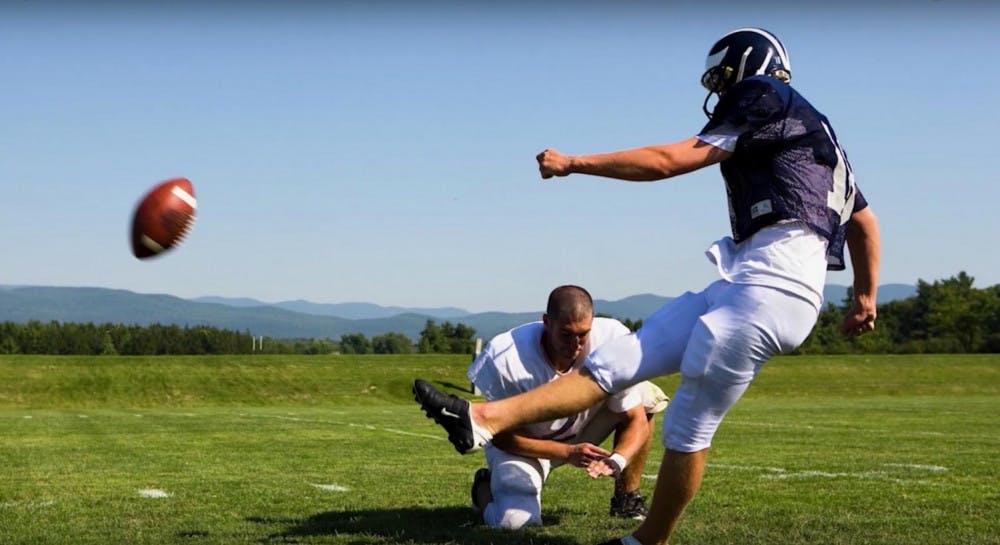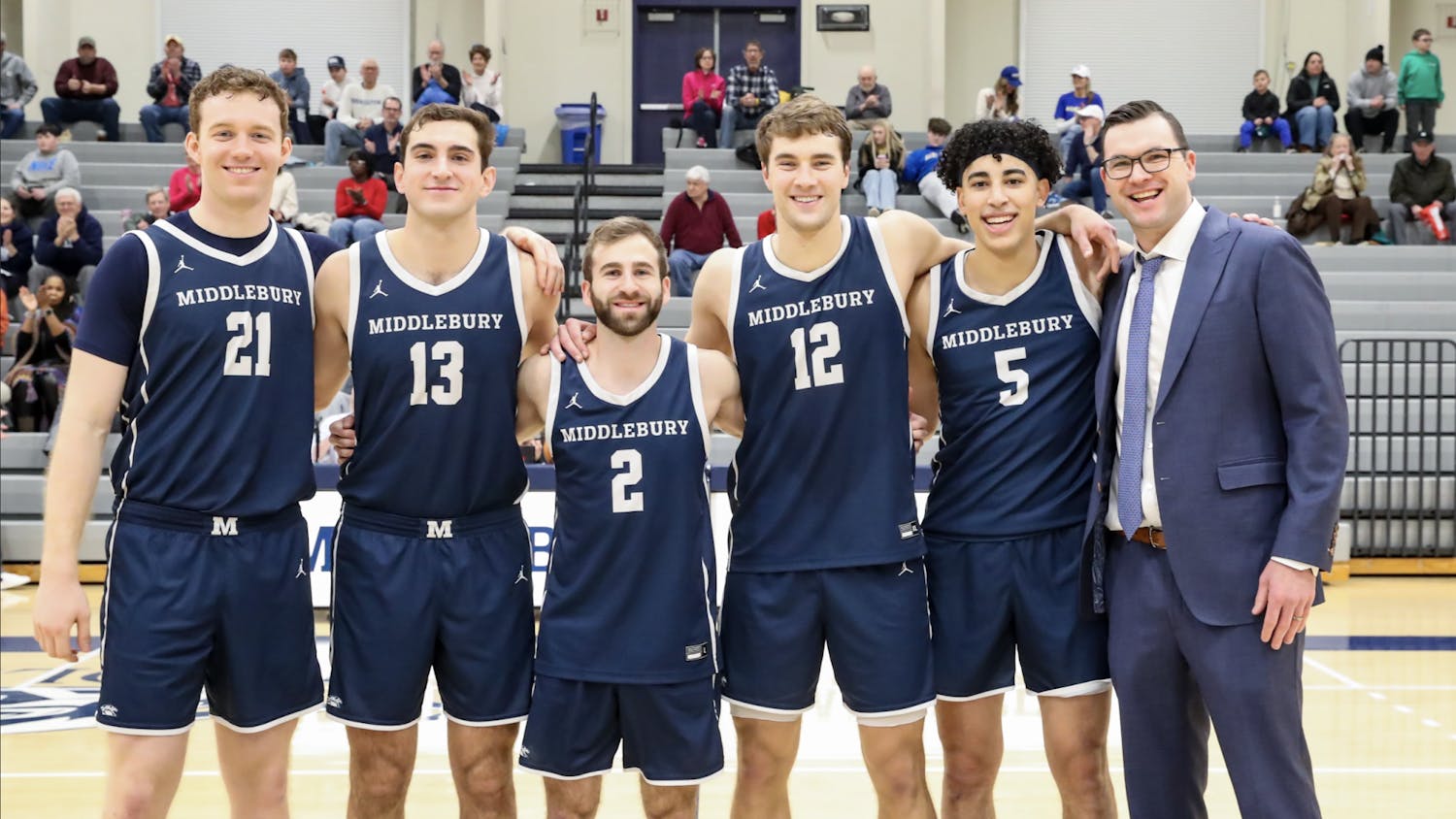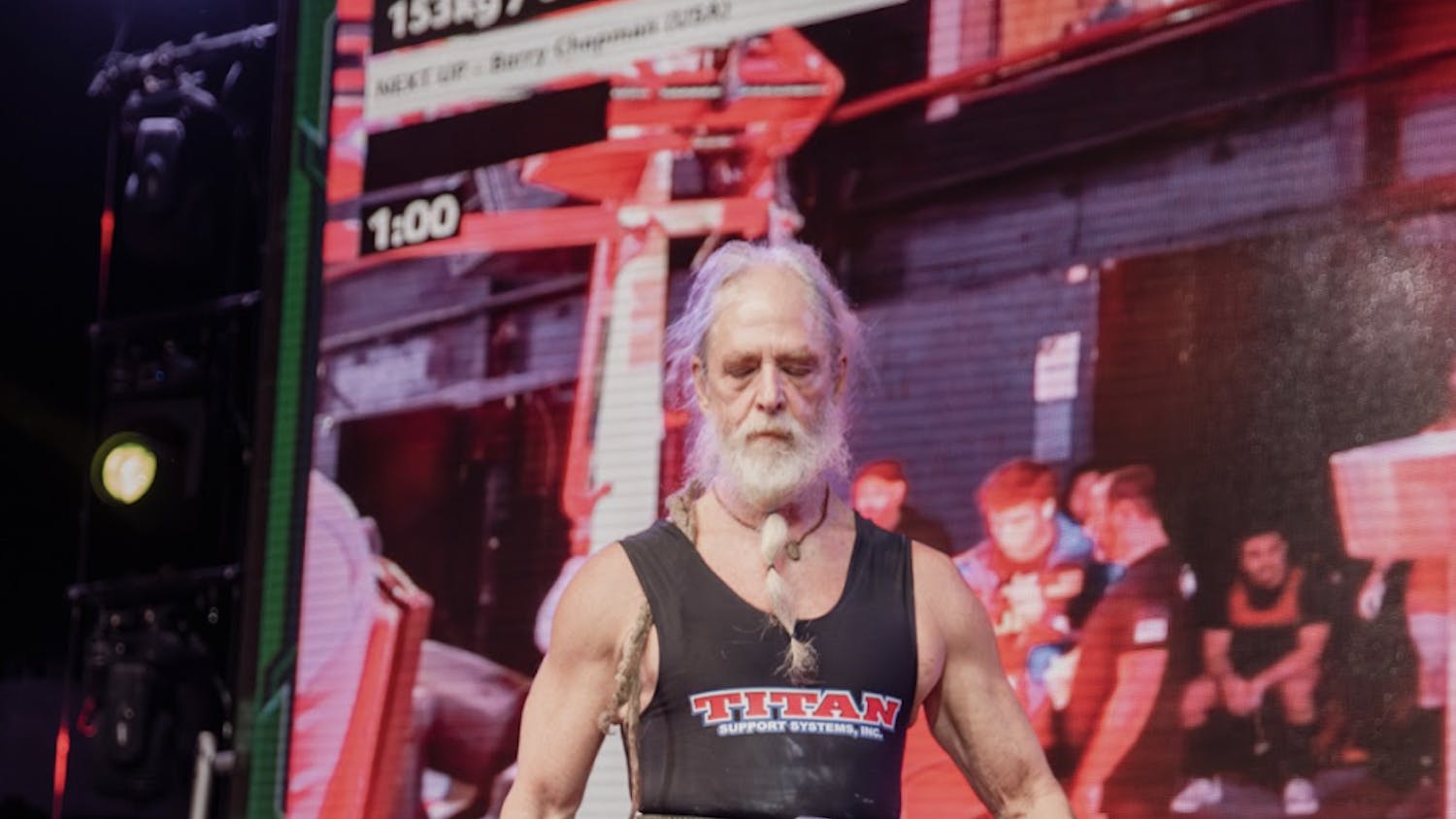After 13 seasons in the NFL, Stephen Hauschka ’07 is hanging up his boots.
The Needham, Mass. native departs the NFL with an impressive legacy, marked by a Super Bowl win with the Seahawks in 2014 and a career field goal accuracy of 85.2%. But when his achievements are put against the backdrop of his unorthodox beginnings, they become all the more impressive.
Hauschka enrolled at Middlebury in 2003 with the aspiration of playing varsity soccer, but that dream never panned out. Instead, he joined the junior varsity soccer team and played lacrosse. Football wasn’t in the picture — it had never been — but once Hauschka arrived at school, the sport surrounded him. His freshman roommate, Scott Secor, was a member of the football team, and Scott’s teammates frequented their dorm room in Battell Hall.
In 2003, the football team went 4–4, with only two field goals all season. Looking to improve, the team started thinking — and that’s when an idea sprouted.
Secor and his football teammates knew that Hauschka had a strong leg — they had seen him use it on the soccer pitch — and with deficiencies on the kicking end of the gridiron, they saw Hauschka as a possible solution. So, they alerted head coach Bob Ritter about Hauschka’s potential, and sure enough, he earned an invitation to preseason camp the following fall.
Hauschka was a hit.
“The first time I really remember him was when he came out in the fall and there were actually three other kickers [but] you knew right away that he was different,” Ritter told The Campus. “The ball just popped off his leg. You could tell right away that he had the skills and talent that the other guys didn’t.”
At first, the ex-soccer player sprayed his kicks all over the place with little accuracy. But after spending time with kicking coach Steve Wolf, who has since retired from coaching at Middlebury, he quickly improved.
“He would drive up from Rutland, and we got to work during practice every day,” Hauschka said in an interview with The Campus. “I learned so much from him and kept getting better and better.”
By opening day, on Sept. 25, 2004, Hauschka had earned a starting position.
“I think I was lucky,” Hauschka said. “My first game, I made my first field goal, which was really helpful. And back then I hadn’t really associated what it feels like to make or miss field goals — but I knew it felt good to make it.”
With such a strong leg, Hauschka was also employed as a punter, tasked with pinning teams far back in their end. Only a few weeks removed from his first football practice, Hauschka was a dual threat.
“He punted the ball inside the 20[-yard line] a ridiculous number of times,” said Ritter. “So he really did have a big impact on the game, not only in the points he scored, but also the hole he put defenses in when punting.”
Every year, Hauschka improved. He hit 10 field goals between his sophomore and junior seasons, and then hit another 10 his senior year. Those tallies lifted him to the top of the program record book in career field goals (20) and most field goals in a season (10). Those records still stand today.
Hauschka was evolving into a polished kicker, so Ritter sent some of Hauschka’s tape to the Baltimore Ravens during his senior year.
“We always felt he had the talent and leg strength to [play in the NFL],” Ritter said. “He would kick a lot of our kickoffs deep and out of the endzone, so we knew he had that leg, and we knew that pro teams also look at that.”
Still holding onto a year of NCAA eligibility since he didn’t join the team until his sophomore year, Hauschka began to consider options for a final season. While a return to Middlebury was possible, both Ritter and Hauschka knew that a bigger school would provide a sturdier stepping stone to the NFL. So Hauschka sent emails to Division I teams, targeting programs with a departing or underperforming kicker. The list included around 45–50 schools.
That’s when North Carolina State University called, offering Hauschka a spot to walk on during training camp. A storied program in the Atlantic Coast Conference, NC State competed against teams like Florida State, UMiami and Clemson. These programs performed on the highest echelon of college football and had a proven track record of producing NFL talent. It was an opportunity that Hauschka couldn’t pass up.
While the setting changed — NC State’s stadium seated over 50,000 — Hauschka's momentum didn’t dwindle. In preseason, he beat out the competition for the starting position and never looked back. That year, he went 16-of-18 for field goals and 25-for-25 on extra points, finishing as a semifinalist for the top college kicking award. It was a dream season.
“After playing at NC State, I think it was January of that year, a couple [NFL] teams started reaching out,” said Hauschka. “Then I put everything I had into it and got signed [by the Minnesota Vikings] as an undrafted free agent.”
Just like that, Stephen Hauschka, a former collegiate JV soccer player, was now signed to a professional contract in the NFL. It was a career that would span 13 seasons, including stops at eight different teams: Minnesota, Baltimore, Atlanta, Detroit, Denver, Seattle, Buffalo and Jacksonville.
Hauschka’s most successful stop was in Seattle. In his six seasons with the Seahawks, he captured six franchise records and was named an alternate for the 2016 Pro Bowl. He also played in two Super Bowls with the Seahawks, winning one in 2014 against the Broncos.
“Just seeing him reach those heights and handle it — it's really exciting to see,” Ritter said. “He just had a great mindset and he really learned how to operate his body under pressure and stay smooth, and that's really the secret to his success.”
JV-soccer-player-turned-Super Bowl winner: it’s a wild success story, punctuated by an unconventional path.
“I think the whole thing is unexpected,” Hauschka said. “I never really thought I'd even play football. I was excited just to play at Middlebury to be honest — I didn’t really know what I was doing. And then I had this great career — win a Super Bowl, lose a Super Bowl — have lots of success on a few different teams and travel all over the country. It really opened my mind to life in general. It's quite an experience being an adult playing a sport.”
Now that Hauschka has a little more time on his hands, he looks forward to planting some roots with his family. After bouncing around the league for the past 12 years, it’s a chance to focus on those relationships and enjoy some semblance of stability.
As for a return to Middlebury, Hauschka won’t rule that out. Once the pandemic calms, he says, Middlebury will be one of the first stops on the docket.
“I'm sure he’ll come back,” Ritter said. “He’s always been very true to Middlebury.”

Blaise Siefer ‘23.5 is a sports staff writer.
Siefer is majoring in Sociology and minoring in Spanish.
For three semesters in 2021 and 2022, Siefer served as Senior Sports Editor. He also co-founded a Middlebury sports recap podcast, PFL Weekly, which is released on all major streaming platforms every Tuesday.
Siefer is also the Co-Founder and Co-President of Middlebury Club Soccer.




